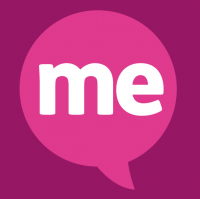I’m Harry, the digital accessibility officer at Mencap, so I’m pleased to be taking the opportunity on Global Accessibility Awareness Day to tell you about some of the things we are working hard on!
I’m a champion for accessibility, and my role is to help make sure the information on our website is simple to understand, using plain English and tools like Easy Read. I want to do my best so nobody is left behind when they’re looking for the information they need. Whether that’s about elections, employment, laws, policy or help and advice, we want people with a learning disability to have access to what matters most to them.
Having accessible information is so important – the COVID pandemic proved that. There were so many different rules about lockdowns, who could get the vaccine, what you could and couldn’t do, and as someone with a learning disability I found it all very confusing. I campaigned to call on the government to make their COVID communications clear.
Campaigning for clear communications
Watch Harry call on the government to make their information about COVID more accessible for people with a learning disability during the pandemic.
I’m still on an accessibility mission now though! I’m working on making sure people with a learning disability are involved every step of the way on our journey to make our website one of the most accessible ones in the world. We’ve reached out to learning disability organisations, self-advocacy groups, and families to get people with a learning disability involved from the very beginning. And soon I’m going to be leading on workshops so we can understand and learn about what works best for people when they’re using websites.
Recently we’ve added two brilliant features on our website that will make information more accessible. The first is a new way of making pages that follow the ideas of Easy Read documents. We used to make things as PDFs for people to download but a lot of the time they are not accessible. Screen readers struggle with them and it is harder to search them online. Plus they are difficult to update with new information.
Making web pages work like Easy Read deals with those problems! But we know sometimes people still like to download and print, share or keep PDFs, so our Easy Read web pages will let you do that still as well. Here's an example of a page about energy tariffs in Easy Read style.
Next is something that has just launched and I think it’s a really exciting development, which is the glossary.
A glossary is a list of words and what they mean that you find in books sometimes, and now on our website some words are coming with a definition of what they mean. You can see it at work on this page! Look out for words that are underlined and see what happens when you put your mouse over them.
Not everyone may be able to use a dictionary or Google what words mean, so having a simple explanation of the word right there on the page is really useful to have. It’s not something that I’ve seen on a website before, so I think this is a great improvement that will make our website more accessible.
So whether it’s information, or a building, or a resource, everyone in society must be able to access what they need in a way that lets them be a part of society, no matter what it is. Accessibility is a human right.

 By Mencap
By Mencap